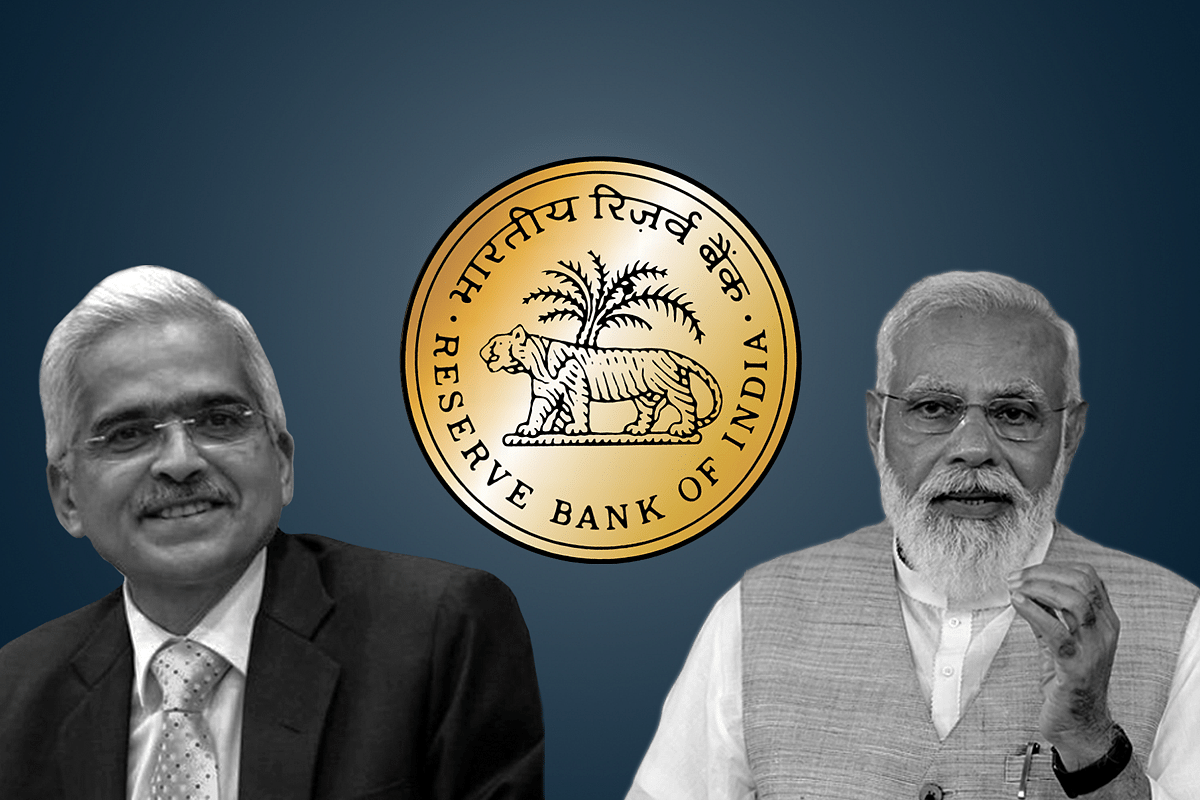News Brief
Here’s How You Can Invest In The RBI Retail Direct Scheme
- The Retail Direct platform will allow retail investors to directly buy and sell government debt securities such as central government debt, state loans, sovereign gold bonds, treasury bills and other securities.

Prime Minister Narendra Modi and RBI Governor Shaktikanta Das.
In a move to deepen the Indian financial markets, Prime Minister Narendra Modi launched the RBI Retail Direct Scheme along with the RBI Integrated Ombudsman Scheme. The former scheme will allow investors to access and trade in the government debt securities market, while the latter will deal with customer complaints with the idea of ‘one nation-one ombudsman’.
How Does The RBI Retail Direct Scheme Work?
The Retail Direct platform will allow retail investors to directly buy and sell government debt securities such as central government debt, state loans, sovereign gold bonds, treasury bills and other securities. To incentivise investor adoption, the investors would not be charged any fees for the services provided to them.
According to a July press release, investors can open a “Retail Direct Gilt Account” (RDG Account) with the RBI. The account can be opened through an online portal created by the RBI. According to the RBI, investors can apply for primary issuances, as well as trade through the order matching system.
The plan for the Retail Direct scheme had been introduced in February 2021.
“As part of continuing efforts to increase retail participation in government securities and to improve ease of access, it has been decided to move beyond aggregator model and provide retail investors online access to the government securities market – both primary and secondary – along with the facility to open their gilt securities account (‘Retail Direct’) with the RBI,” the RBI report had said.
Why Is The RBI Opening Up The Government Securities Market?
The Indian government is seeking to widen its investor base to fund its huge debt appetite. Institutional investors have dominated the sovereign debt market, with investors getting jittery as the government looks to execute its record $165 billion borrowing plans.
Several other Asian countries like the Philippines have turned to raising capital from their citizens, as the demand for bonds falls and bond yields rise. As crude oil and commodity prices rise, the RBI would have to opt for higher interest rates, possibly disturbing the government’s aim to execute the borrowing programme at lower cost. Therefore, bringing in new investors could prove to be a smart move.
According to a report, while retail investors’ direct participation has increased rapidly in the equity markets, they still directly contribute to less than 1 per cent of the debt markets. Hence, the move could help the government tap a potentially large funding base.
While the primary bond markets have opened up previously with NSE (National Stock Exchange), NSDL (National Securities Depository Limited), and CDSL (Central Depository Services Limited) offering primary issuance subscription facilities, secondary trading in government securities is still controlled by the RBI. Hence, investors have to create a separate account with the RBI for trading in government securities.
Who Is Eligible To Invest In The Scheme?
Retail investors can invest in the scheme if they meet the following five criteria:
1. Rupee savings bank account
2. Permanent account number issued by the Income Tax Department
3. Official valid documents for know-your-customer purposes
4. A valid email ID
5. A registered mobile number
If an investor has all of the items listed above, then they can register on the online portal by filling out a form and verifying it with a one-time password. Once registered successfully, the RDG account will be opened.
Investors looking to participate in the primary issuances of government securities can bid for the securities. The participation and allotment will be conducted as per the non-competitive scheme for participation in primary government auctions. Only one bid per security is allowed, and the payment can be made using net-banking or UPI (unified payments interface). If the UPI-based bid is successful, the blocked amount will be debited. The securities allotted to the investors will reflect in the RDG account on settlement day.
Similarly, the investor can sell or purchase securities on the secondary market through the RBI’s anonymous, screen based, order-matching system.
For investors looking to buy securities from the secondary market, a transfer of funds must be made to the Clearing Corporation of India using net-banking or UPI facilities. Subsequently, a funding limit will be provided to place buy orders. When the trading session ends, the remaining money will be refunded back to investors. The funds in the linked bank account will be debited on settlement day if the transactions are conducted through UPI.
In addition, the online portal will offer other investor services such as account statements, nomination facilities, pledging facilities, gifting facilities, and grievance redressals for any complaints.
Introducing ElectionsHQ + 50 Ground Reports Project
The 2024 elections might seem easy to guess, but there are some important questions that shouldn't be missed.
Do freebies still sway voters? Do people prioritise infrastructure when voting? How will Punjab vote?
The answers to these questions provide great insights into where we, as a country, are headed in the years to come.
Swarajya is starting a project with an aim to do 50 solid ground stories and a smart commentary service on WhatsApp, a one-of-a-kind. We'd love your support during this election season.
Click below to contribute.
Latest